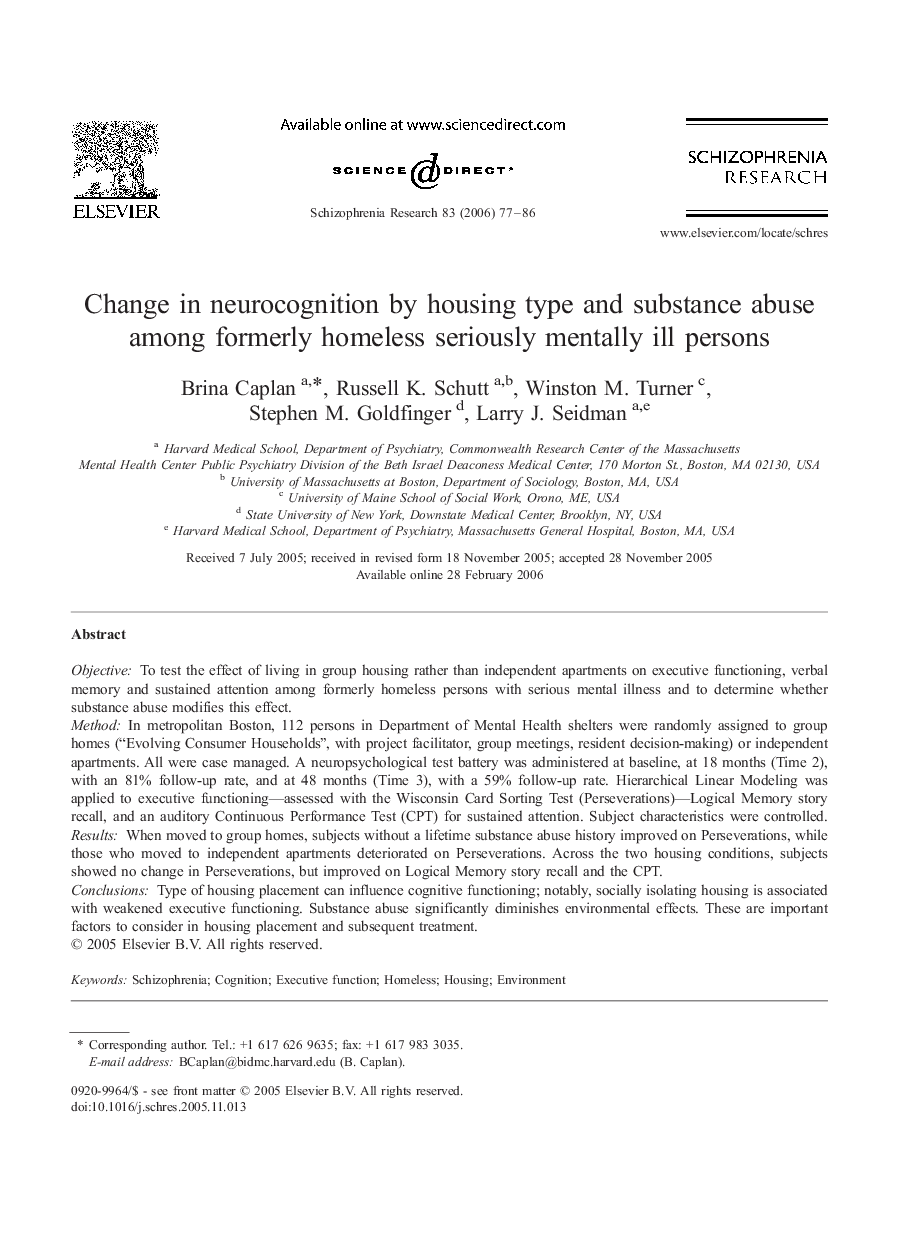| Article ID | Journal | Published Year | Pages | File Type |
|---|---|---|---|---|
| 341771 | Schizophrenia Research | 2006 | 10 Pages |
ObjectiveTo test the effect of living in group housing rather than independent apartments on executive functioning, verbal memory and sustained attention among formerly homeless persons with serious mental illness and to determine whether substance abuse modifies this effect.MethodIn metropolitan Boston, 112 persons in Department of Mental Health shelters were randomly assigned to group homes (“Evolving Consumer Households”, with project facilitator, group meetings, resident decision-making) or independent apartments. All were case managed. A neuropsychological test battery was administered at baseline, at 18 months (Time 2), with an 81% follow-up rate, and at 48 months (Time 3), with a 59% follow-up rate. Hierarchical Linear Modeling was applied to executive functioning—assessed with the Wisconsin Card Sorting Test (Perseverations)—Logical Memory story recall, and an auditory Continuous Performance Test (CPT) for sustained attention. Subject characteristics were controlled.ResultsWhen moved to group homes, subjects without a lifetime substance abuse history improved on Perseverations, while those who moved to independent apartments deteriorated on Perseverations. Across the two housing conditions, subjects showed no change in Perseverations, but improved on Logical Memory story recall and the CPT.ConclusionsType of housing placement can influence cognitive functioning; notably, socially isolating housing is associated with weakened executive functioning. Substance abuse significantly diminishes environmental effects. These are important factors to consider in housing placement and subsequent treatment.
